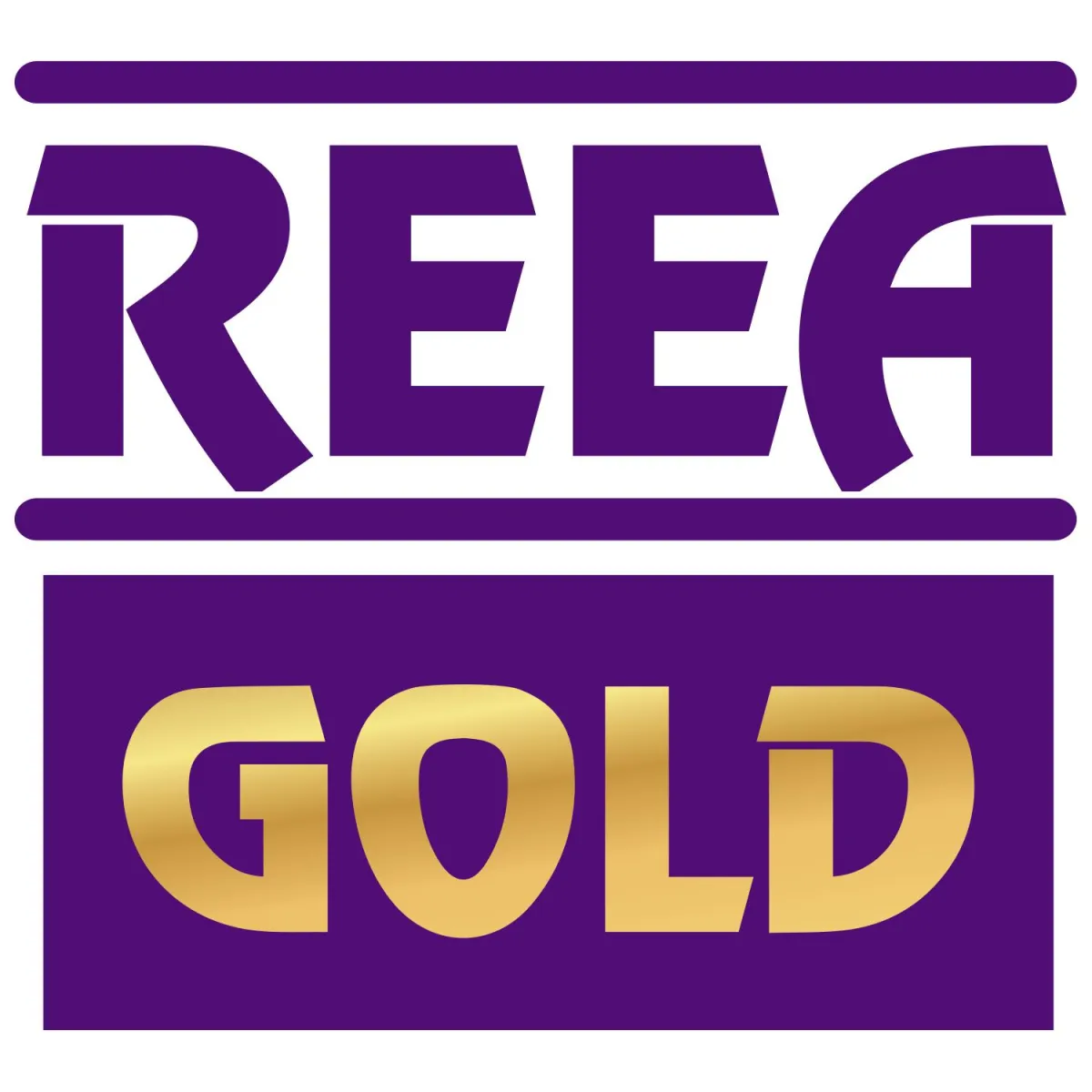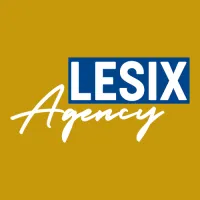Read the Lesix Blog


How Can Blockchain Technology Enhance Security in Online Transactions for Small Businesses?
As a small business owner, you know that online security is no joke. One data breach or fraudulent transaction can sink your ship faster than the Titanic. But what if I told you there's a technology out there that can fortify your online defenses like a digital Fort Knox? That's right, I'm talking about blockchain. How Can Blockchain Technology Enhance Security in Online Transactions for Small Businesses?
You might be thinking, "Blockchain? Isn't that just for tech nerds and crypto enthusiasts?" But hold on a second – blockchain technology can actually revolutionize the way small businesses handle online transactions. It's like having a superhero guarding your digital cash register, making sure every transaction is secure, transparent, and lightning-fast. And here's the kicker: you don't need to be a computer whiz to take advantage of it! Let's get into the details of How Can Blockchain Technology Enhance Security in Online Transactions for Small Businesses.
Understanding Blockchain Technology and Its Security Benefits
Blockchain technology is a game-changer for small businesses looking to enhance their online transaction and data security. It's a decentralized, tamper-proof ledger system that records transactions across a network of computers. This means no single point of failure or control by any one entity. Pretty cool, right?

How Blockchain Works
Here's the deal: each block in the chain contains a unique cryptographic hash of the previous block, timestamp, and transaction data. Once recorded, the data in any given block can't be altered retroactively without changing all subsequent blocks. This makes blockchain incredibly secure and resistant to modification by design. It's like having an unbreakable seal on your data.
Key Features of Blockchain
What makes blockchain so special for security? A few key things: 1. Decentralization: No central authority controls the network, reducing risk of failure or manipulation. 2. Immutability: Once data is recorded, it's practically impossible to alter or delete without detection. 3. Transparency: All network participants can view and verify transactions, ensuring accountability. 4. Enhanced security: Cryptographic algorithms and consensus mechanisms protect against unauthorized access and tampering.
Advantages of Blockchain for Security
Blockchain's decentralized nature and cryptography provide unparalleled security benefits for online transactions. By distributing data across a network, blockchain makes it incredibly difficult for hackers to compromise sensitive information. Plus, the immutable records act as a secure audit trail, allowing for easy tracking and verification of transactions. This transparency helps prevent fraud and builds trust between parties. Studies show that blockchain can reduce data breaches by up to 90% compared to traditional centralized systems. That's a huge win for small businesses looking to protect their customers' data and their own reputation.
Ways Blockchain Can Enhance Online Transaction Security for Small Businesses
So, how exactly can small businesses leverage blockchain to boost their online transaction security? Let's dive into some practical applications.
Secure Data Storage
One of the biggest advantages of using blockchain for small businesses is the ability to securely store and manage sensitive data. By distributing data across a decentralized network, you significantly reduce the risk of data breaches and unauthorized access. No more worrying about a single point of failure in regards to data privacy or relying on vulnerable centralized servers. With blockchain, your data is encrypted and spread out, making it incredibly difficult for hackers to get their hands on it.
Smart Contracts for Automated Transactions
Another game-changing feature of blockchain is smart contracts. These self-executing contracts have the terms of the agreement directly written into code, automating transactions and ensuring they are carried out as agreed upon. For small businesses, this means reduced risk of fraud, disputes, and the need for intermediaries. Smart contracts provide a secure, transparent, and efficient way to conduct transactions with customers and partners.
Decentralized Identity Management
Blockchain-based identity management systems empower small business owners to securely verify and manage the identities of their customers and partners. By using decentralized identifiers (DIDs) and verifiable credentials, you can minimize the risk of identity theft and enhance trust in your online transactions. No more relying on vulnerable centralized identity databases. With blockchain, users have control over their own identity data, and businesses can verify credentials without exposing sensitive information.
Reduced Risk of Fraud and Chargebacks
Fraudulent activities and chargebacks are major headaches for small businesses. But with blockchain's immutable and transparent ledger, it becomes much harder for bad actors to manipulate transactions or initiate unauthorized chargebacks. Every transaction is recorded on the blockchain, creating an auditable trail that can be used to resolve disputes and prevent fraudulent behavior. This helps protect your revenue and keeps your customers happy.
Improved Supply Chain Transparency
For small businesses dealing with physical products, blockchain can be a game-changer for supply chain management. By recording product movement and transactions on an immutable ledger, you can provide unprecedented transparency and traceability from origin to end-user. This helps combat counterfeiting, ensures product authenticity, and builds trust with your customers. They can easily verify the provenance and journey of your products, giving them peace of mind and boosting your brand reputation.
Implementing Blockchain Technology in Your Small Business
Now that you understand the incredible security benefits and applications of blockchain for small businesses, you might be wondering how to actually implement it in your own operations.
Assessing Your Business Needs
The first step is to assess your specific business needs and identify areas where blockchain can provide the most value. This could be secure data storage, automated transactions via smart contracts, identity management, or supply chain transparency. Take a good hard look at your current pain points and security challenges. Where are you most vulnerable? What processes could be streamlined and secured with blockchain? Answering these questions will help guide your implementation strategy.
Choosing the Right Blockchain Platform
Once you've identified your needs, it's time to choose a blockchain platform that aligns with your goals and budget. There are several options out there, each with their own strengths and trade-offs. Some popular choices for businesses include Ethereum, Hyperledger Fabric, and Corda. These platforms offer different features, scalability, and community support. Do your research and consult with blockchain experts to find the best fit for your small business.
Integrating with Existing Systems
Integrating blockchain with your existing systems and processes is crucial for a smooth and successful implementation. This may require adapting current workflows, developing APIs, and ensuring compatibility between the blockchain solution and your legacy systems. Start small and gradually integrate blockchain into your operations. This incremental approach helps minimize disruption and allows your team to get comfortable with the new technology. Don't try to overhaul everything at once - slow and steady wins the race.
Training Your Team
To fully leverage the benefits of blockchain, your team needs to be on board and educated about the technology. Invest in comprehensive training programs that cover the fundamentals of blockchain, its applications in your business, and how to interact with the new system. Make sure everyone understands the security benefits, limitations, and operational aspects of blockchain. Empower your team to ask questions, provide feedback, and contribute ideas for improvement. The more invested they are, the smoother your implementation will be.
Ensuring Regulatory Compliance
Depending on your industry and location, there may be specific regulations and compliance requirements surrounding the use of blockchain technology. It's crucial to stay informed about these rules and work with legal experts to ensure your implementation is fully compliant. This is especially important for businesses dealing with sensitive data, financial transactions, or operating in heavily regulated sectors. Don't let compliance issues derail your blockchain adoption - do your due diligence and seek professional guidance. By following these steps and keeping security at the forefront, your small business can successfully implement blockchain technology and reap the benefits of enhanced online transaction security. It may seem daunting at first, but trust me - the payoff is well worth the effort.
Key Takeaway:
Blockchain tech offers small businesses a way to up their online security game big time. It's all about spreading data across multiple spots, making it super tough for hackers to do any damage. Plus, smart contracts and better identity checks mean less fraud and happier customers.
Real-World Examples of Small Businesses Using Blockchain for Secure Transactions
Blockchain isn't just for big corporations. Small businesses are starting to see the real-world benefits of this game-changing technology. From securing transactions to streamlining operations, blockchain offers a host of practical applications that can give small businesses a competitive edge.

Case Study 1: E-commerce Store
Imagine an online store that accepts cryptocurrency payments. By using a blockchain-based payment system, they can process transactions securely and cost-effectively. No more worrying about chargebacks or fraudulent purchases. Plus, by appealing to crypto-savvy customers, they can tap into a whole new market. That's the power of peer-to-peer transactions on the blockchain.
Case Study 2: Service-Based Business
Picture a small service-based business that uses smart contracts to automate client agreements. No more chasing down payments or dealing with contract disputes. With blockchain, the terms of the agreement are coded into the contract itself. Once the work is complete, the payment is released automatically. It's a hassle-free way to ensure everyone holds up their end of the deal. And it saves time and resources that can be better spent growing the business.
Case Study 3: B2B Supplier
Now, imagine a small B2B supplier that uses blockchain to track inventory in real-time. By recording every movement of goods on the blockchain, they can provide complete transparency to their customers. No more wondering where a shipment is or if it's been tampered with along the way. With blockchain, everyone can see the journey of a product from start to finish. It's a level of supply chain visibility that was once reserved for big corporations. But now, even small suppliers can offer this kind of real-time data to their customers.
Addressing Common Concerns and Challenges with Blockchain Adoption
Of course, adopting any new technology comes with its fair share of concerns and challenges. And blockchain is no exception.
Scalability and Performance
One of the biggest concerns with blockchain is scalability. Can it handle the volume of transactions that a small business needs to process? The short answer is: it depends. Different blockchain platforms have different transaction speeds and capacities. But the good news is that new solutions are emerging all the time. From layer 2 protocols to new consensus mechanisms, there are ways to address the scalability issues of blockchain.
Interoperability with Legacy Systems
Another challenge is integrating blockchain with existing systems. Most small businesses already have a tech stack in place, from accounting software to inventory management tools. Getting blockchain to play nice with these legacy systems can be a headache. But it's not impossible. By working with experienced blockchain developers, small businesses can find ways to bridge the gap between old and new technologies.
Regulatory Uncertainty
Then there's the issue of regulation. The legal landscape around blockchain is still evolving, and it can be hard to keep up with the latest developments. For small businesses, this regulatory uncertainty can be a major barrier to adoption. No one wants to invest in a technology that might be outlawed tomorrow. But by staying informed and working with legal experts, small businesses can navigate the complex world of blockchain regulation.
Cost of Implementation
Finally, there's the cost of implementation. Blockchain isn't cheap, especially for small businesses with limited budgets. Between the infrastructure costs and the talent required to build and maintain a blockchain system, it can be a significant investment. But it's important to weigh those costs against the potential benefits. By streamlining operations, reducing fraud, and opening up new revenue streams, blockchain can pay for itself in the long run.
The Future of Blockchain in Securing Online Transactions for Small Businesses
Despite the challenges, the future of blockchain in small business looks bright. As the technology matures and becomes more accessible, we can expect to see even more innovative applications emerge.

Emerging Trends and Innovations
One exciting trend is the rise of decentralized finance (DeFi). By using blockchain to create new financial instruments and markets, DeFi has the potential to level the playing field for small businesses. Imagine being able to access loans, insurance, and investment opportunities without going through traditional gatekeepers. That's the promise of DeFi. Another area to watch is the intersection of blockchain and AI. By combining the security of blockchain with the intelligence of AI, small businesses can create even more powerful and efficient systems.
Potential Impact on Business Models
As blockchain becomes more mainstream, it has the potential to disrupt traditional business models. From supply chain management to customer loyalty programs, blockchain offers new ways of creating and capturing value. For small businesses, this could mean entirely new revenue streams and ways of doing business. By embracing blockchain early, they can position themselves to take advantage of these emerging opportunities.
Competitive Advantage for Early Adopters
Of course, being an early adopter of any new technology comes with risks. But it also comes with rewards. By being among the first to implement blockchain, small businesses can gain a significant competitive advantage. They can offer new products and services that their rivals can't match. They can also attract tech-savvy customers and investors who are looking for companies on the cutting edge. So while the road to blockchain adoption may be bumpy, the destination is worth it. For small businesses that are willing to take the leap, the future is bright indeed.
Key Takeaway:
Blockchain isn't just a buzzword; it's a real game-changer for small businesses, offering secure transactions, smart contracts for hassle-free agreements, and transparent supply chains. While challenges like scalability and costs exist, the benefits—reduced fraud, new markets, and competitive edges—are compelling reasons to dive in.
FAQs in Relation to How Can Blockchain Technology Enhance Security in Online Transactions for Small Businesses?
How can blockchain technology enhance security in financial transactions?
Blockchain encrypts and scatters data across a network, slashing the odds of hacks and fraud in financial deals.
How blockchain technologies can secure transactions and information systems?
By creating tamper-proof records of every transaction, blockchain shields info from unauthorized changes or breaches.
How can businesses benefit by using blockchain?
Firms get a trust boost with transparent dealings, plus they cut down on middlemen costs. It's efficient and safer.
How blockchains strengthen the security of internet of things?
This tech fortifies IoT gadgets against cyber threats by decentralizing data storage. Fewer weak spots mean tougher security.
Conclusion
How Can Blockchain Technology Enhance Security in Online Transactions for Small Businesses? Blockchain technology is a game-changer for small businesses looking to beef up their online security. By leveraging secure data storage, smart contracts, decentralized identity management, and improved supply chain transparency, you can protect your business from fraudsters and hackers like never before.
But don't just take my word for it. Real-world examples prove that blockchain is already making a difference for small businesses across industries. From e-commerce stores accepting crypto payments to B2B suppliers enhancing supply chain visibility, the possibilities are endless.
Scaling your small business with blockchain technology isn't always a smooth ride. Bumps in the road like handling high transaction volumes or navigating government regulations can slow you down. But stay flexible, get creative, and keep pushing forward – the payoff for being an early adopter is worth it!
So what are you waiting for? Embrace the power of blockchain and take your online security to the next level. Your customers, your bottom line, and your peace of mind will thank you.

Lesix Companies LLC
80 Seven Hills Blvd
Suite 101 #103
Dallas, GA 30132
Connect




We use cookies to analyze our website traffic and tailor your experience. We also utilize that information for digital advertising. We also share information about your use of our site with our social media, advertising and analytics partners who may combine it with other information that you’ve provided to them or that they’ve collected from your use of their services. By using this website, you consent to the Privacy Policy. This website is not affiliated nor part of any network of sites outside of the Lesix Family of Companies.
Important: Earnings and Legal Disclaimers
We believe in hard work, adding value, and serving others. We cannot and do not make any guarantees about your own ability to get results or earn any money with our ideas, information, programs, or strategies. Nothing on this page, any of our websites, or emails is a promise or guarantee of future performance or earnings. Any financial numbers referenced here, on any of our sites, or communications are simply estimates or projections or past results, and should not be considered exact, actual or as a promise of potential earnings. This website makes no guarantees about estimates of potential direct mail projects, printing, design, or any other elements.

